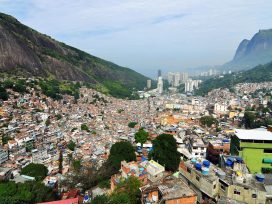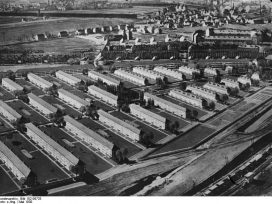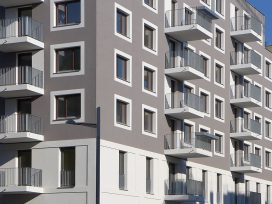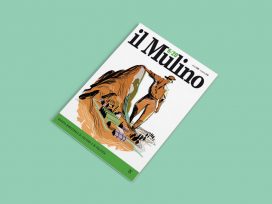 It is axiomatic among artists – they declare it with particular vigour when applying for cultural subsidies – that wonderful creative acts can mythologise an entire city, propel it into the realms of the symbolic. In our postmodern world (so goes the happy theory) such apotheoses can have mighty (if vaguely defined) benefits to the general citizenry: “Joyce’s Dublin” and “Kafka’s Prague” are most often quoted as proof.
It is axiomatic among artists – they declare it with particular vigour when applying for cultural subsidies – that wonderful creative acts can mythologise an entire city, propel it into the realms of the symbolic. In our postmodern world (so goes the happy theory) such apotheoses can have mighty (if vaguely defined) benefits to the general citizenry: “Joyce’s Dublin” and “Kafka’s Prague” are most often quoted as proof.
Actually, it was the cities that helped make these writers so popularly famous, not the other way around. Joyce had no need to put his unloved home town on the map of the world. Whilst he was writing Ulysses, it did so itself, in spades and to the infinite aid of Joyce’s novel, whose first readers thus found themselves introduced not to an obscure regional city, but to a new-fledged capital, site of a terrible beauty, the names of whose buildings and streets had already made themselves bloodily familiar. Franz Kafka owes the dubious privilege of his coffee-mug fame as a Middle-European Nostradamus (which so obscures the true delights of his social satires) to the fact that the city he longed all his life to escape became the fulcrum of Europe’s twentieth-century tragedy twice in the fifty years after his death – having already (in a way which Kafka himself found highly irksome) become the focus of its ill-founded hopes during his lifetime.
But if the haunted-eyed icon of Almost Dying Kafka, patron saint of all that is Pale & Interesting, is nothing whatever to do with the facts of his life, it is perfect for Prague. For the city remains a fascinating and uncanny place. How has it come about that this most history-ridden of cities, this matchlessly walkable collection of architectural and atmospheric gems, should at the same time have become the closest Europe can offer to history-less, weightless (in Kundera’s sense) Las Vegas: what goes on here, stays here, as countless British and German stag-parties trust. What other city can offer you Mozart in the very theatre where Don Giovanni was premiered, thus competing right up there with Salzburg, Vienna and Paris in the Western High Culture stakes but also tempt you to enjoy the delights of beery machine-gun ranges hidden away amidst dark, dank pines (the echoes of the guns in the dripping forests shout “Katyn!” or “Babi Yar!” to any thinking visitor), and spacious UV-lit rooms draped about with pretty young whores?
The secret is, I think, a literal one, and it hangs on one word. For if Vienna was where the notion of repression was born, Prague, just up the main railwayline (and in Freud’s day a vital part of the same Empire), is surely where it now most obviously resides. There is no city on earth so tourist-oriented that has so much to be quiet about.
If, as runs the argument of Jared Diamond’s wonderful “Guns, Germs and Steel”, much of human history is decided by blind, brute geography, then Prague was always doomed to be interesting. It lies on, or rather is, the focal point of the great fault-lines in European history: Catholicism vs Protestantism, German vs Slav and, most recently, Soviet “socialism” (i.e. the Red Army) vs Anglo-Saxon “liberty” (aka the untrammelled hand of the market). From 1618 to 1989, the hopes and fears of Europe have repeatedly collided here.
No single truth has ever won out. To the Founding Fathers of America, freedom was freedom was freedom, universal and self-evident. In Prague, even such apparently obvious concepts are as floppy as Dali’s watches: from the Battle of the White Mountain onwards, “freedom” to a Czech in Prague meant something very different (and, by 1918, diametrically opposed) to “freedom” for a German Prager. The sense of being watched by suspicious eyes here was not imported by the Soviets or even the Gestapo. The gorgeous Catholic monuments of Prague’s counter-reformation came ready-packed with Vienna-backing priests and prelates. By Kafka’s day, any public meeting had to have a police functionary present and observing; any application for a state or semi-state job (like Kafka’s), however minor, had to be supported (as was Kafka’s) by a “certificate of good behaviour” from the police – positive vetting, in other words.
The goode olde Strauss-walzing Habsurg Empire, however innocuous it now appears compared to what followed hereabouts (well, it would), was in truth the fons et origo of every modern police state. Backed, as the saying went, by their four armies – the standing army, the sitting army (of bureaucrats) the kneeling army (of priests) and the creeping army (of informers), the Habsburgs wanted only resources and resolve to make Metternich’s system work in practice. What they lacked in high authority, they made up in low cunning, becoming past-masters at setting their national minorities against one another (the Bosnian horrors of the 1990s were the ultimate result of the Habsburg Empire’s deliberate systemisation of cultural-religious interest group politics).
For centuries, in other words, people in Prague have had to be on their guard, even in the lightest communal moments, for the unconscious genuflection, the verbal tick, the bat of the social eyelid, that might give away unspoken allegiance. The result, by Kafka’s time, was cultural and especially linguistic hypersensitivity (the badge that mattered in Prague was not race or confession, but language). Not for nothing was the seminal Prague School obsessed with trying to find some kind of sub-linguistic, formal structures which might show a way to truth beyond what Kafka called the “trench of Babel”. Even at the most banal level, Prague still proclaims that what we call things and what things actually are simply don’t mesh: always described as “Middle Europe” if it’s lucky (“Eastern Europe” if it’s not), Prague actually stands well to the west of Vienna, never mind substantial areas of Germany. This tantalising border existence is the nature of the place and has long been so. For prosperous Wilhemine teutons, the city of Hus and the Golem (or at least, her compact, warren-like core, which, then as now, was all anyone wanted to see) was already a popular tourist destination. Prague was a picturesque remnant of a fast-disappearing pre-industrial world; a place of familiar-looking architectural glories, agreeably mockable Yiddish bizarreness and edgy Slav possibilities, but one handily placed halfway along the main line from Berlin to Vienna and policed by an efficient, German-speaking, German-ordered constabulary (backed up if need be, as it more and more often was, by a German-speaking Army).
Derrida & Cie. love to play language-games about the quasi-erotic charge of “otherness”, but in Prague, then and now, there is often nothing quasi about it. Kafka’s recently de-expurgated diaries now once again contain in full the episode from 1911 in which Max Brod and Kafka (who at this stage in his life is positively blithe about brothels and suchlike, never mind un-tortured) are visited by a Leipzig worthy who has heard of Prague’s nightlife from a previous guest of our two bold young men-about town and wants to sample them (he especially likes pregnant whores.) A soft-core porn story of Brod’s makes it clear that one of the main attractions of Czech girls is their cute, baby-German (thanks to two world wars and one cold one, today’s working girls speak cute baby-English instead).
This story of Brod’s, “A Czech Serving Girl”, is little known because it appeared in 1906-07 in an upmarket, subscribers-only, essentially erotic magazine, one of whose takers (before it was legally banned due to the pictures in it) was a certain Prague millionaire’s son by the name of Dr Franz Kafka. In 1908 the editor of this magazine, one Dr Franz Blei, became Kafka’s first-ever publisher; in 1915, Blei fixed a half-share of the major Berlin literary prize (and much attendant publicity) for Kafka in a blatant piece of literary insider dealing.
This story is unknown today largely because, starting with Brod himself, Kafka’s champions would rather it had not been so. To say that the truth has been repressed might sound too strong, but the fact is that of all the 10,000- odd publications now extant about Kafka’s life and work, not a single one has ever pointed out the full connection between Blei and Kafka, nor published the striking pictures – some of which would be top-shelf stuff even today – in the magazine to which Kafka, as his letters reveal, enthusiastically and jollily subscribed.
It’s this strange state of affairs that makes Kafka the perfect icon for repressed Prague, along with the Black Theatre and its eerie sidestep from reality. For example, the truisms about Kafka – that he was part-Jew, part- Czech, part-German – are factually accurate, just as it is indisputable that Prague is the Czech capital. But such “truths” are only true in 3-D. Add in the fourth dimension which is necessary for all real human life, an awareness of history, and the picture of Prague, and of its literary idol, is very different. The bald fact is that most of the gorgeous old buildings of Prague were universally regarded, before 1918, as part of greater German culture’s architectural patrimony: many of the later examples were indeed deliberate reifications of German-speaking dominance. They are only Czech now because the Czechs (quite understandably) kicked the Germans out. But who wants to know this today? And who wants to be reminded that throughout Kafka’s lifetime, it was the Czechs, not the Germans, who were the anti-Semites in Prague – or that Kafka himself clearly supported, and indeed freely invested large sums of money in, the Austro-German war effort?
Of all the symbols of this repressed Czech-German-Jewish history, the most memorable is the asylum for mentally-damaged war-wounded, founded largely by Kafka himself in 1916-17 and still extant more or less as he left it, in a place which was, in Kafka’s day, rather wonderfully called Frankenstein. Now, you would imagine, would you not, that Dr Kafka’s Asylum for Mentally-Damaged Soldiers in Frankenstein would be an irresistible magnet for young film-makers? In fact, it is entirely unknown to the tourist trade and scarcely more known to scholars, despite its being the one actual relic of Kafka’s life that would truly support his quasi-saintly image. When I went there last year with the BBC, the doctors had no idea of the Kafka connection at all and told us we were the first film crew ever to visit – this despite its being scarcely two hours drive from any of the mighty universities of Munich, Dresden and Leipzig, never mind only an hour from Prague.
Why is the place so ignored? I think the answer is simple: because this was a German-speaking area until 1945, and Kafka’s mental hospital was (by his own express avowal) founded exclusively for German-speaking soldiers. The good soldier Schweyk, however shell-shocked, would simply not have made Kafka’s linguistic cut.
All this is perfectly well known about but never spoken of, either by tourist guides or literary hagiographers. The fate of the truth about Kafka makes it seem, on some dreary, sunless level athwart the glooming flats where psychology and culture interweave ineluctably, vaguely proper, if endlessly sad, that Prague has become what it is: a place of booze, brothels and endless tourist shops selling babushka dolls to overnight trippers unable to distinguish between Czech and Russian culture. The facts will be efficiently repressed in the name of business, locked away in some lumber-room of the mind, like Josef K.’s sado-masochistic vision in The Trial, wiped clean by the kerosene wake of the Ryanair flight home. Maybe, when your history is as damaged as Prague’s, repression is a necessary part of survival (Freud never said it wasn’t: he only said that if repression starts to cause neurosis, it is best identified). Certain demonstrable facts – that the photogenic city is really German, that in Kafka’s day the German-speaking police and army repeatedly broke up Czech anti-Jewish riots – are simply no good at all in a place that must look to the future because the past is so tortured.
There remains the question that rears up – vengefully unrepressed at last! after Gregor Samsa’s metamorphosis into a giant bug (the story is a black comedy, by the way, whose nearest ancestor is very clearly Dostoyevsky’s wonderful “The Double”): “but what [thinks the giant bug!] if all this peace, this prosperity, this contentment, should now come to a terrible end?” Over the last decade, Prague has located its salvation in America, the friendly Hegemon that is always ready to treat history as bunk, the Empire which, in the days of its triumphs, never occupied a country, only minds. But the Imperium of the Second Chance visibly ebbs, its mental hold on the world bankrupted, its universal dream of freedom without frontiers shrunk tragically into futile little wars over nastily real, past-haunted desert acres. Meanwhile the Tzardom, replete with energy, revives from the dead, red shoulder-boards and all; Western Europe, that oft-raped widow, dithers and bickers: and Germany (of whose economy the Czech is in practice virtually a satellite), no longer quite the Swiss-clean, Rhine-centred, self-effacing country of recent memory, finds its attention shifting to those lands of cheap gas, low wages and faded Habsburg town halls which were always Berlin’s natural sphere of concern.
In a black-comic turn that could come straight from Hasek, America has now declared its allegedly anti-Iranian missiles redundant in any case, leaving Prague having gratuitously made itself once again into the place where the long waves of history boil up against one another as the tides shift. But what choice was there? What choice has Prague ever had? It is still what it always was: doomed to be interesting, the location that predicts the fate of all Europe. Maybe we should all be re-reading Kafka yet again – and listening very carefully to what Prague’s writers and artists, those natural sniffers-out of repressed truth, are quietly saying right now.

 It is axiomatic among artists – they declare it with particular vigour when applying for cultural subsidies – that wonderful creative acts can mythologise an entire city, propel it into the realms of the symbolic. In our postmodern world (so goes the happy theory) such apotheoses can have mighty (if vaguely defined) benefits to the general citizenry: “Joyce’s Dublin” and “Kafka’s Prague” are most often quoted as proof.
It is axiomatic among artists – they declare it with particular vigour when applying for cultural subsidies – that wonderful creative acts can mythologise an entire city, propel it into the realms of the symbolic. In our postmodern world (so goes the happy theory) such apotheoses can have mighty (if vaguely defined) benefits to the general citizenry: “Joyce’s Dublin” and “Kafka’s Prague” are most often quoted as proof.




